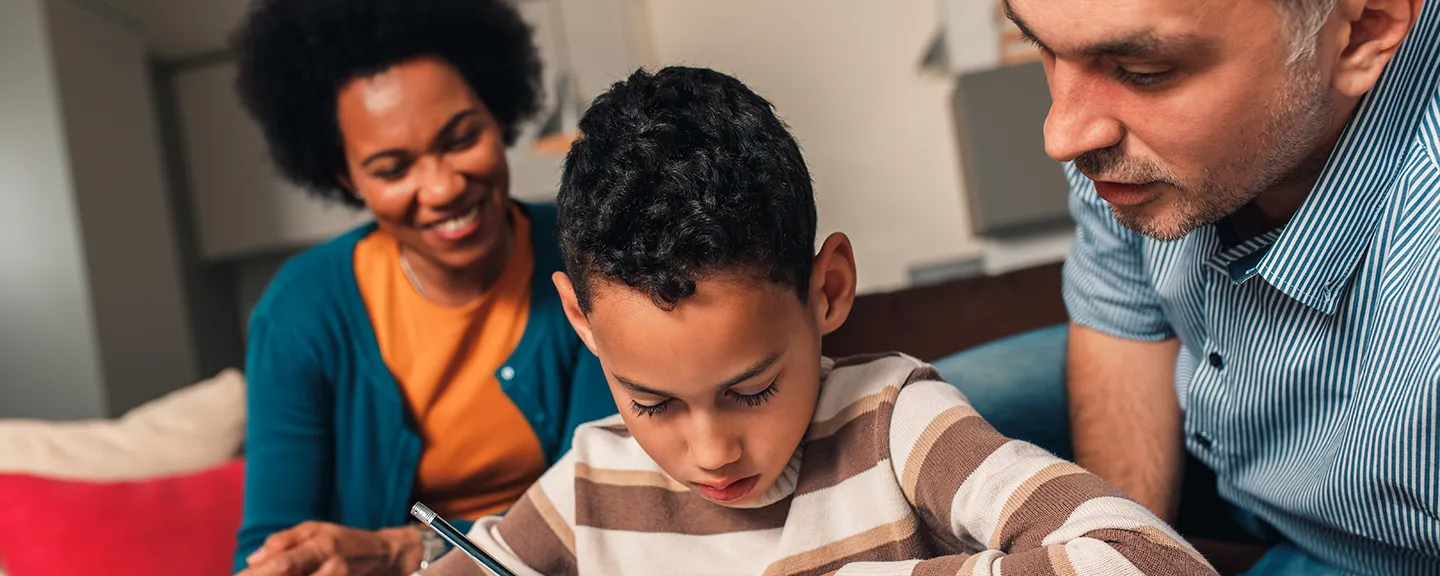- Home
- >
- APU Articles
- >
- News Article
A School Psychologist Shares 5 Ways to Help Kids Cope During a Crisis
May 08, 2020 | Written By Anna Cayot ’20 and Evelyn Allen, M.S. ’19

Heather Maguire, PsyD, BCBA-D, is a school psychologist, Board Certified Behavior Analyst, and assistant professor in Azusa Pacific University’s Department of School Counseling and School Psychology. Maguire also hosts a podcast for parents covering common behavior issues and topics. Several recent episodes focus on parenting strategies during the Coronavirus pandemic and ways to prevent and address anxiety in children.
Here are some of the top recommendations Maguire shares with families:
1. Start Open-Ended Conversations
On the outside, your child’s feelings may not be evident, which is why Maguire suggests asking questions that leave room for their emotions and self-expression to surface.
“Ask open-ended questions to understand how your kids are feeling about all of the changes they are experiencing,” Maguire says. “It’s important to continue this conversation with your children and teens on a regular basis because their feelings and needs may change as time goes on.”
2. Take an Honest Approach
There are developmentally appropriate ways to inform kids about what is happening while helping them understand they are safe and secure. Maguire offers several examples for children at different developmental levels:
- Preschool: Talk about the importance of washing hands more often. Discuss staying inside to be helpers to doctors and nurses and to keep their grandparents or older loved ones safe from germs.
- Elementary: Children at this age may be ready to know that a lot of people in our country and the world are sick. Share with them the responsibility we have to help slow down the spread of the virus.
- Teenagers: Consider watching the news in limited quantities or sharing positive milestones in the fight against coronavirus with teenage children. These can spur helpful family discussions. (But avoid watching the news in front of young children.)
“It may be helpful to identify times during the day where the family can discuss concerns about the virus together,” says Maguire.
3. Continue to Affirm Children’s Feelings
Take care not to minimize how your child may be feeling. For example, your child might tell you that she is feeling scared. Rather than telling her not to feel scared, you could say, “It’s okay to feel scared. Can I give you a hug? What are you feeling scared about?”
“It’s okay to follow up with reassurances about what you are doing to keep your child safe,” says Maguire, “but make sure to affirm their feelings.”
4. Help Your Child Practice Mindfulness
If you find your child is struggling to focus on topics other than the virus, Maguire recommends looking up mindfulness strategies to do with them.
“Taking 10 deep breaths with your eyes closed is one of the easiest ways to practice mindfulness,” she says. “Taking a treat (e.g., a piece of chocolate) and having your child use all of their senses to experience the treat is another way. They can talk to you about what the treat looks like, what its texture feels like, and what it smells like before they place it in their mouths. Then they can do their best to eat it as slow as possible to truly consider its taste.”
5. Let Your Kids Help Create Their Daily Schedules
Structure is important and kids want to know what to expect as they adjust to their new normal, Maguire says. That’s why she recommends discussing a daily schedule with your child and allowing them to help create it.
For younger children, write the schedule down with words and/or pictures. For older kids, a verbal discussion of the schedule may be all that is needed. “As much as is developmentally appropriate, try to encourage your kids to be independent,” Maguire explains.
With Maguire’s first-grader, they sit down together after breakfast with a list of everything she needs to do for school. “We go over it together, and she gets to decide on the order,” she says. “Then I allow her to work independently on the items she is able to, and she checks them off as she completes them. Later in the day, we check her work together.” Maguire’s third-grader typically navigates Google classroom without much assistance from mom.
“If your kids are younger, you may want to have them play in a safe area where you can observe from a distance,” she adds. “For example, toddlers might have quiet times in their room playing with toys or looking at books for short periods of time.” If you have one or can purchase one online, a light alarm or nap alarm is a helpful tool. It will allow young kids to know when their independent playtime is finished.
“If kids are experiencing significant anxiety, reach out to your child’s pediatrician,” Maguire advises. “Telehealth options are often available to families seeking mental health services during this challenging time.”